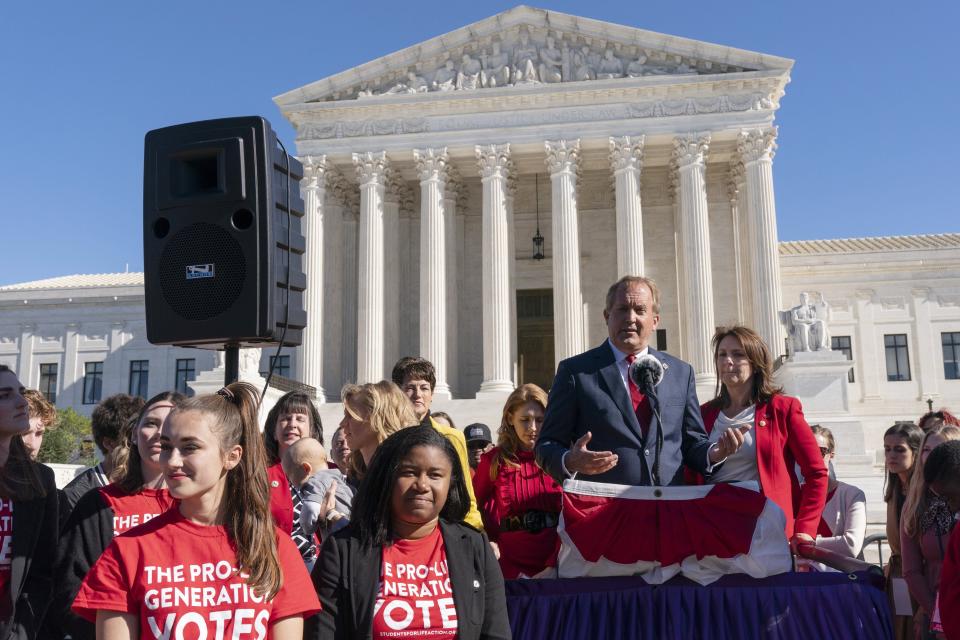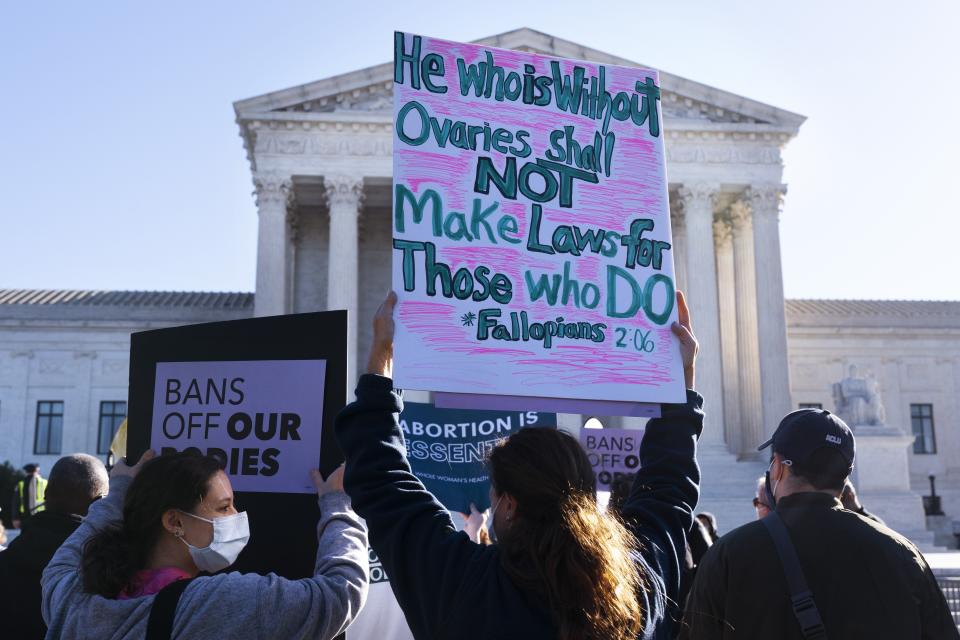How Texas' abortion law, the nation's most restrictive, got to this point
Abortion opponents knew, months before the Texas Legislature convened in January 2021, that the 140-day session would feature bold steps in their 48-year fight to outlaw the procedure.
One goal was to pass clearly unconstitutional laws in hopes of getting the issue before the new 6-3 conservative majority on the U.S. Supreme Court — launching a legal fight that could overturn all or part of prior opinions that established the right to an abortion.
One priority, Senate Bill 8, was dubbed the Heartbeat Act because it outlawed abortions once embryonic cardiac activity could be detected, which generally occurs around the sixth week of gestation, before most women know they are pregnant.
More: Texas judge rules some provisions of state's restrictive abortion law violate Texas Constitution

The law exceeded expectations when court decisions allowed SB 8 to go into effect while its constitutionality was being weighed, blocking access to abortion for many of those who could not travel out of state for the procedure.
The U.S. Supreme Court on Friday declined to block the law from being enforced for the third time since it was adopted, while permitting a legal challenge brought by abortion providers to proceed in district court in Austin.
More: Supreme Court allows clinics to challenge Texas' abortion law, lets Senate Bill 8 stand
Here's the history of the nation's most restrictive abortion regulation since the U.S. Supreme Court's landmark ruling in Roe v. Wade established a right to abortion in 1973:
March 11: SB 8 is filed in the Texas Senate and given a low bill number by Lt. Gov. Dan Patrick, designating it as a priority. It eventually gains 16 Republican and one Democratic co-author in the Senate, plus 74 House co-sponsors, all of them with the GOP.
March 22: Placed on a fast track, SB 8 is voted out of committee one week after its public hearing ended around 10:30 p.m. with 65 witnesses testifying.
More: How the Supreme Court's ruling on a Mississippi abortion law will affect Texas

March 30: The Texas Senate gives final approval to SB 8 on a 19-12 vote with all Republicans in favor and all Democrats opposed except for Sen. Eddie Lucio Jr. of Brownsville.
May 6: The Texas House gives final approval after making several small changes, including blocking those accused of rape or incest from filing lawsuits to enforce SB 8. Senators quickly approve the changes.
May 19: Gov. Greg Abbott signs SB 8 into law, saying: "Our creator endowed us with the right to life, and yet millions of children lose their right to life every year because of abortion. In Texas, we work to save those lives, and that's exactly what the Texas Legislature did this session."
July 17: Abortion providers led by Whole Woman's Health file suit to block SB 8 from going into effect, as scheduled, on Sept. 1.
Aug. 27: U.S. District Judge Robert Pitman of Austin rejects a motion to dismiss the providers' lawsuit and sets an injunction hearing. State officials appeal, and the 5th U.S. Circuit Court of Appeals cancels the hearing.
More: At first campaign rally, Beto knocks Abbott on abortion laws, guns; stresses labor ties
Aug. 30: Abortion providers turn to the U.S. Supreme Court, filing an emergency application to block SB 8 from taking effect the following day.
Sept. 1: SB 8 goes into effect, forcing abortion providers to dramatically reduce scheduled appointments. Late in the day, the Supreme Court rejects the providers' emergency request to block the law in a 5-4 ruling.
Sept. 9: The U.S. Department of Justice sues Texas in an effort to halt enforcement of SB 8, saying it violates the U.S. Constitution and federal law.
Oct. 6: Pitman grants the injunction sought by the Biden administration, ruling that Texas cannot enforce the abortion regulation.
Oct 8: Texas appeals, and that same day the 5th Circuit Court halts Pitman's order to take a deeper look at the case.
Oct. 14: The appeals court issues a longer stay of Pitman's order, prompting the Justice Department to ask the Supreme Court to intervene.
More: GOP voting bill, abortion drug legislation, and other special session laws set to take effect
Oct. 22: The Supreme Court rejects the Justice Department request to let Pitman's injunction stand but accepts the issue for expedited review, combining the Justice Department case with the earlier lawsuit filed by Texas abortion providers. The high court limits its review to whether providers or the Biden administration has standing to sue.
Nov. 1: The court hears oral arguments in the two cases while advocates on both sides of the debate hold rallies outside.
Nov. 10: A state district judge hears more than a dozen legal challenges to the law in a separate effort to block its enforcement filed in state court. Abortion providers, organizations that help fund abortions and other individuals seek to block Texas Right to Life, an anti-abortion group, from suing them under the law.
Dec. 9: In the state-level challenge to the law, a district judge issues the first court order weighing the constitutionality of the law. Judge David Peeples says the enforcement mechanism included in SB 8 violates the Texas Constitution and should not be enforced, but he does not block the law.
Dec. 10: Ruling 8-1, the Supreme Court dismisses the Justice Department's challenge to SB 8, but says a legal challenge brought by abortion providers can continue in a federal district court in Austin. For now, the law is still in effect.
This article originally appeared on Austin American-Statesman: How Texas' abortion law became the nation's most restrictive

